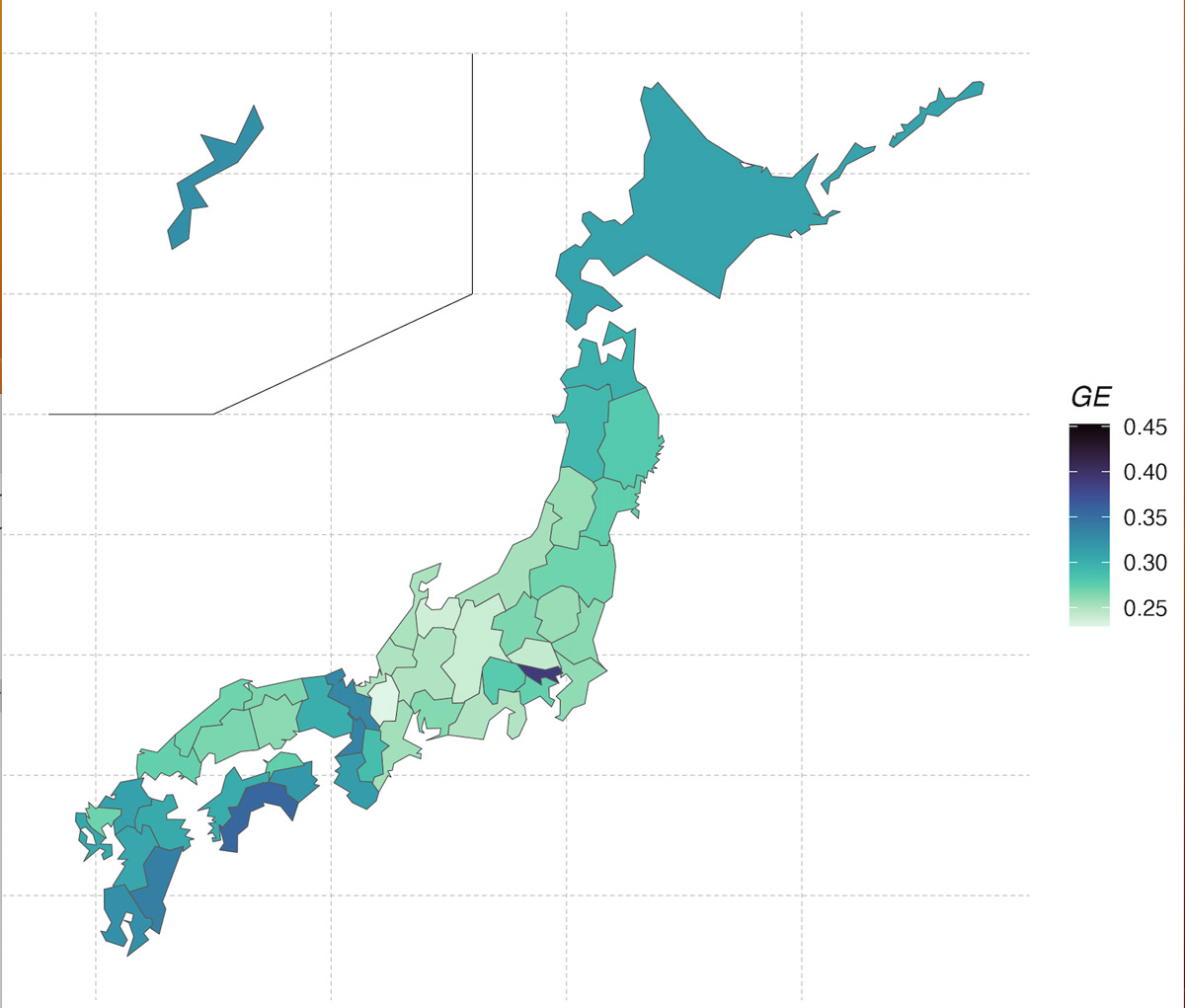Development of statistical methods for analyzing the contribution of within-region and between-region inequalities

-
- Principal Investigator
Associate Professor / Yuki KAWAKUBO
- Affiliation
Graduate School of Social Sciences, Chiba University
Researchmap
ORCID ID
- Principal Investigator
This research aims to develop a statistical method for measuring income inequality using a measure called generalized entropy (GE). Specifically, I develop a method for simultaneously estimating the GE of the population (the entire country) and the GE of each subpopulation (e.g., regions). The GE has the property of decomposability, which means that the GE of the population is equal to the sum of the weighted average of the GE of each subpopulation (within-group inequality) and the GE of the mean of the subpopulation (between-group inequality). This property allows me to analyze the contribution to inequality in the overall population and to obtain important policy implications regarding income distribution, such as fiscal policy.
On the other hand, the conventional statistical method for obtaining estimates compatible with such a decomposition from sampled data does not work well as the number of subpopulations becomes large. In the case of Japan, the entire country is divided into approximately 1900 municipalities, so the conventional method cannot produce appropriate estimation results. Therefore, I will develop a new method that overcomes the shortcomings of the conventional method. First, I assume appropriate parametric probability distributions for the entire country and each subpopulation suitable for the sample size. Next, I estimate the parameters of those probability distributions by solving the posterior risk minimization problem while imposing constraints on the parameters so that they are compatible with the decomposition of GE. This type of statistical method is called the constrained Bayesian method. The resulting estimates are compatible with the decomposition and are expected to be more efficient than the conventional method for estimating GE for both the population and subpopulations.
I apply the proposed method to Japanese data and decompose the national inequality into the within-prefecture inequality and the between-prefecture inequality. Furthermore, I decompose the GEs of each prefecture into the within-municipality inequality and the between-municipality inequality and analyze the contribution of inequality.

